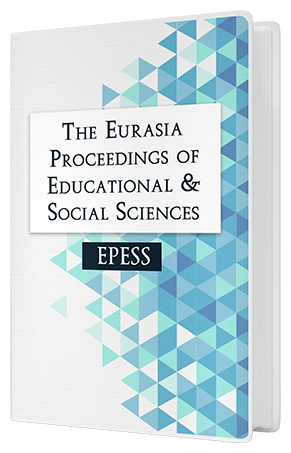Examination of Organizational Alienation with Bibliometric Analysis Method in National Literature
DOI:
https://doi.org/10.55549/epess.1381504Keywords:
Alienation, Organizational alienation, National literature, Bibliometric analysis methodAbstract
Today's employees desire to be appreciated and accepted by their superiors. This plays a fundamental role in the positive perception of the organization by employees. In this context, the alienation concept is becoming more crucial day by day. Accordingly, this study aims to examine the bibliometric features of the articles reviewed in Dergipark's infrastructure system in Turkey on organizational alienation. In this study, 26 articles published in Dergipark between 2014 and 2023 were analyzed through the bibliometric analysis method. In this context, the SPSS 25 package program was used while analyzing the data, and frequencies and percentages were examined. According to the results of the study, it was found that the number of studies on organizational alienation increased in 2021. It was determined that the subject area of the journals in which the articles are published is in the business field, which is included in the discipline of social sciences. It was concluded that the publication language of the studies is generally Turkish. It was determined that the said studies were generally performed in the production and service sectors. Quantitative research methods were used in all articles. In general, employees and teachers were sampled in the articles. The number of samples in articles was between 101 and 200. Furthermore, the most commonly studied concept related to organizational alienation has been organizational elements such as organizational culture. The most used keyword within the scope of the keywords in the articles was determined to be alienation. It was also found that the number of citations in the articles was between 1 and 10, and the most cited article was between 1 and 80.Downloads
Published
Issue
Section
License
Copyright (c) 2023 The Eurasia Proceedings of Educational and Social Sciences

This work is licensed under a Creative Commons Attribution-NonCommercial-ShareAlike 4.0 International License.
The articles may be used for research, teaching, and private study purposes. Any substantial or systematic reproduction, redistribution, reselling, loan, sub-licensing, systematic supply, or distribution in any form to anyone is expressly forbidden. Authors alone are responsible for the contents of their articles. The journal owns the copyright of the articles. The publisher shall not be liable for any loss, actions, claims, proceedings, demand, or costs or damages whatsoever or howsoever caused arising directly or indirectly in connection with or arising out of the use of the research material. All authors are requested to disclose any actual or potential conflict of interest including any financial, personal or other relationships with other people or organizations regarding the submitted work.




